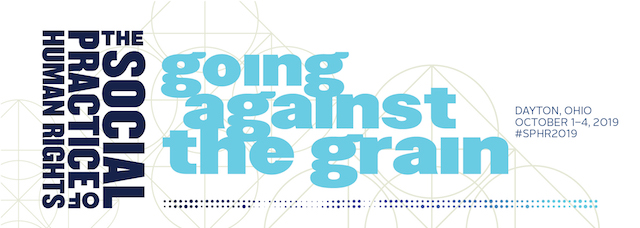Location
Intersection of Arts, Tech, and Advocacy
Start Date
10-3-2019 9:00 AM
End Date
10-3-2019 10:30 AM
Keywords
performance, Mexico, War on Drugs, necropolitics
Abstract
Since 2006, the initiation of Mexico’s “War on Drugs,” the nation has experienced horrific violence despite increased militarization of its streets. As cartels have deepened their networks, controlling the northern border states and beyond, (random) acts of violence have become an endemic crisis. In this Mexico, one where a new daily vernacular constantly evolves to articulate brutal acts and the state has routinely espoused a rhetoric of ignorance, performer-activists have turned to creative initiatives to combat efforts that invisibilize and derealize victims. From her work, Gore Capitalism, in which she explores the human body as commodity and casualty in 21st century Mexico, this paper situates Sayak Valencia’s declaration at its center: “We do not want abstract discourses disconnected from the body, but instead discourses that are able to re-frame the causes, extend and persistence of violence in the gore-ridden Third World. We want discourses that refuse to appeal to victimization and the nullification of our subjectivities and agency” (11). Focusing on embodiment, both of those pertaining to the living world and those lost to Mexico’s “war,” the work of Violeta Luna and Teresa Margolles stand out as exemplary models. Luna’s piece, Requiem for a Lost Land (2013), and Margolles’ piece Sutura, 2018, forefront a critique of Mexico under ex-President Enrique Peña Nieto (2012-2018) and establish new modes of performance art that grapple with re-centering liminal bodies, those doubly lost to violence and the State’s rhetoric of erasure. As part of analyzing the work of these two artists, this paper will explore the role of art/musuem spaces to house performances, the notion of bodily presence, and the responsibility of the artist in times of turmoil.
Author/Speaker Biographical Statement(s)
Dr. Christina Baker is an Assistant Professor of Spanish in the Department of Global Languages & Cultures at the University of Dayton. Prior to her arrival, she was a Visiting Assistant Professor of Hispanic Studies at William & Mary. She earned her Ph.D. in Contemporary Latin American Literature at the University of Wisconsin and her M.A. in Latin American Studies at the University of California - San Diego. As a scholar-practitioner, Dr. Baker's interests focuses on expressions of queerness, belonging and social justice via embodied performance. Spanning musical performance to cabaret, her work explores artistic and literary productions throughout the Latin/x American world.
Included in
Feminist, Gender, and Sexuality Studies Commons, Latin American Languages and Societies Commons, Modern Languages Commons, Performance Studies Commons
Wounds, Remembrance, Sutures: Performing Existence in Times of Gore Capitalism
Intersection of Arts, Tech, and Advocacy
Since 2006, the initiation of Mexico’s “War on Drugs,” the nation has experienced horrific violence despite increased militarization of its streets. As cartels have deepened their networks, controlling the northern border states and beyond, (random) acts of violence have become an endemic crisis. In this Mexico, one where a new daily vernacular constantly evolves to articulate brutal acts and the state has routinely espoused a rhetoric of ignorance, performer-activists have turned to creative initiatives to combat efforts that invisibilize and derealize victims. From her work, Gore Capitalism, in which she explores the human body as commodity and casualty in 21st century Mexico, this paper situates Sayak Valencia’s declaration at its center: “We do not want abstract discourses disconnected from the body, but instead discourses that are able to re-frame the causes, extend and persistence of violence in the gore-ridden Third World. We want discourses that refuse to appeal to victimization and the nullification of our subjectivities and agency” (11). Focusing on embodiment, both of those pertaining to the living world and those lost to Mexico’s “war,” the work of Violeta Luna and Teresa Margolles stand out as exemplary models. Luna’s piece, Requiem for a Lost Land (2013), and Margolles’ piece Sutura, 2018, forefront a critique of Mexico under ex-President Enrique Peña Nieto (2012-2018) and establish new modes of performance art that grapple with re-centering liminal bodies, those doubly lost to violence and the State’s rhetoric of erasure. As part of analyzing the work of these two artists, this paper will explore the role of art/musuem spaces to house performances, the notion of bodily presence, and the responsibility of the artist in times of turmoil.



